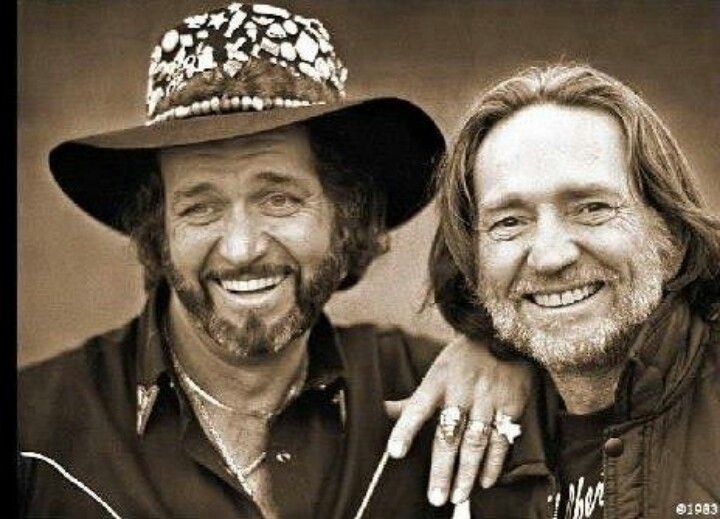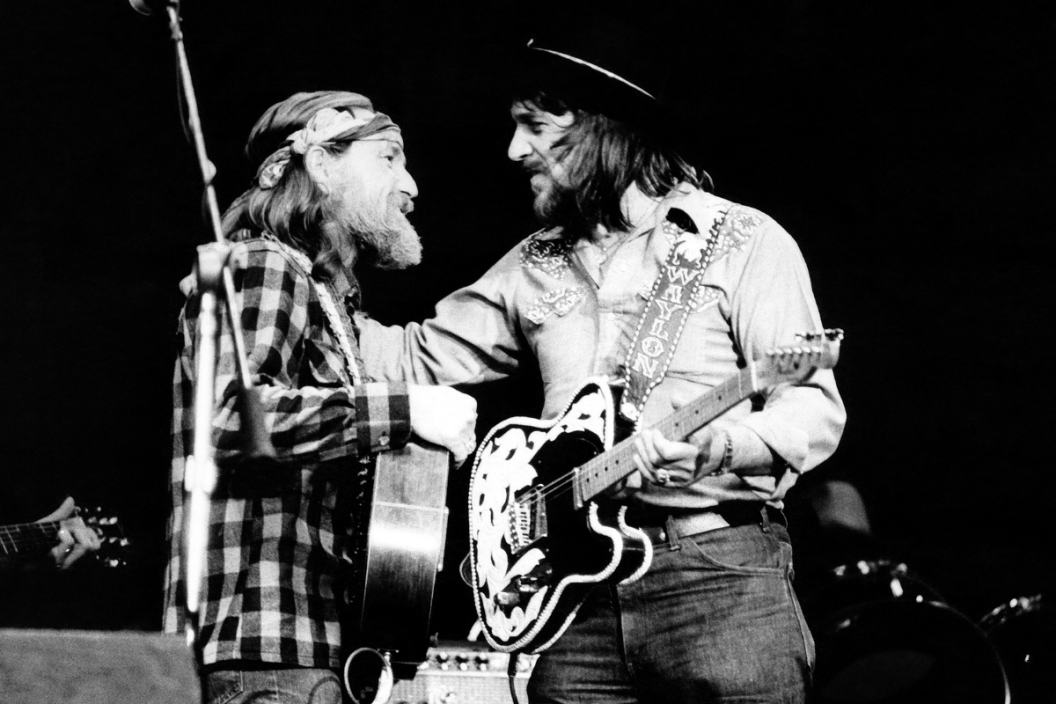“Mammas Don’t Let Your Babies Grow Up to Be Cowboys” by Waylon Jennings and Willie Nelson is a song that captures the essence of the outlaw country movement of the 1970s, blending a rebellious spirit with heartfelt advice. Released in 1978 as a single from their collaborative album Waylon & Willie, the song quickly became an anthem of the era, reaching the No. 1 spot on the Billboard Hot Country Singles chart. Its success solidified both artists’ positions as icons of country music, particularly within the subgenre that celebrated independence and a rugged, unpolished sound.

The song, written by Ed and Patsy Bruce, is a poignant and slightly tongue-in-cheek plea from mothers to steer their sons away from the cowboy lifestyle. It’s a life that, while romanticized in popular culture, is fraught with loneliness, hardship, and a stubborn independence that can often lead to heartache. The lyrics juxtapose the allure of the cowboy image—riding horses, living free, and staying true to oneself—with the harsh realities of such a life, including isolation and the difficulty of maintaining relationships.
From the opening lines, the song sets the tone with its direct advice: “Mammas, don’t let your babies grow up to be cowboys.” The use of the term “babies” adds a layer of tenderness to the otherwise rugged subject matter, reminding listeners that cowboys, with all their rough edges, were once innocent children. The song continues with a list of reasons why the cowboy life might not be ideal: “They’ll never stay home, and they’re always alone, even with someone they love.”
The collaboration between Waylon Jennings and Willie Nelson is one of the song’s strongest elements. Both artists were at the peak of their careers, and their contrasting vocal styles complement each other perfectly. Jennings’ deep, resonant voice brings a sense of gravitas to the lyrics, while Nelson’s more laid-back, conversational delivery adds a touch of warmth and familiarity. Together, they create a dynamic that feels authentic, as if they’re sharing wisdom earned through their own experiences.
Musically, the song is a classic example of outlaw country, with its straightforward guitar riffs, steady rhythm, and unpretentious production. The instrumentation is kept simple, allowing the vocals and lyrics to take center stage. This minimalist approach is effective, as it keeps the focus on the message of the song and the chemistry between Jennings and Nelson.
Thematically, “Mammas Don’t Let Your Babies Grow Up to Be Cowboys” is a reflection on the tension between freedom and responsibility, a common theme in country music. The cowboy represents the ultimate free spirit, unbound by societal expectations and free to roam as he pleases. However, this freedom comes at a cost, as the song poignantly illustrates. The cowboy’s independence often leads to a life of solitude, where meaningful connections are difficult to maintain.
The song’s appeal lies in its relatability. While not everyone can identify with the cowboy lifestyle, the underlying message about the challenges of pursuing a life of independence and nonconformity resonates with many. It’s a reminder that every choice comes with trade-offs, and that the pursuit of freedom, while noble, can sometimes lead to unintended consequences.
“Mammas Don’t Let Your Babies Grow Up to Be Cowboys” also carries a sense of nostalgia, particularly for those who grew up idolizing the cowboy image. The song acknowledges the allure of the cowboy while gently cautioning against it, creating a bittersweet tone that resonates with listeners. It’s both a celebration of the cowboy’s free spirit and a recognition of the sacrifices that such a life entails.
In the context of the outlaw country movement, the song is particularly significant. Jennings and Nelson were both key figures in this movement, which sought to break away from the polished, commercialized sound of mainstream country music. Their collaboration on this track is a testament to their shared vision of what country music could be: raw, honest, and unafraid to tackle complex themes.
Overall, “Mammas Don’t Let Your Babies Grow Up to Be Cowboys” is more than just a hit country song—it’s a piece of Americana that reflects the cultural and musical landscape of the late 1970s. Its enduring popularity is a testament to its universal themes and the powerful performances by Waylon Jennings and Willie Nelson. Whether you’re a fan of traditional country music or the outlaw movement, this song is a must-listen that captures the spirit of an era while offering timeless advice in a way that only country music can.
Let’s sing along with the lyrics!
Cowboys ain’t easy to love, and they’re harder to hold
They’d rather give you a song than diamonds or gold
Lone star belt buckles and old faded Levi’s
And each night begins a new day
If you don’t understand him, and he don’t die young
He’ll probably just ride away
Mamas, don’t let your babies grow up to be cowboys
Don’t let ’em pick guitars, and drive them old trucks
Let ’em be doctors and lawyers and such
Mamas, don’t let your babies grow up to be cowboys
‘Cause they’ll never stay home, and they’re always alone
Even with someone they love
Cowboys like smokey old poolrooms, and clear mountain mornings
Little warm puppies, and children and girls of the night
Them that don’t know him won’t like him
And them that do, sometimes won’t know how to take him
He ain’t wrong, he’s just different
But his pride won’t let him do things to make you think he’s right
Mamas, don’t let your babies grow up to be cowboys
Don’t let ’em pick guitars, and drive them old trucks
Let ’em be doctors and lawyers and such
Mamas, don’t let your babies grow up to be cowboys
‘Cause they’ll never stay home, and they’re always alone
Even with someone they love
Mamas, don’t let your babies grow up to be cowboys
Don’t let ’em pick guitars, and drive them old trucks
Let ’em be doctors and lawyers and such…
